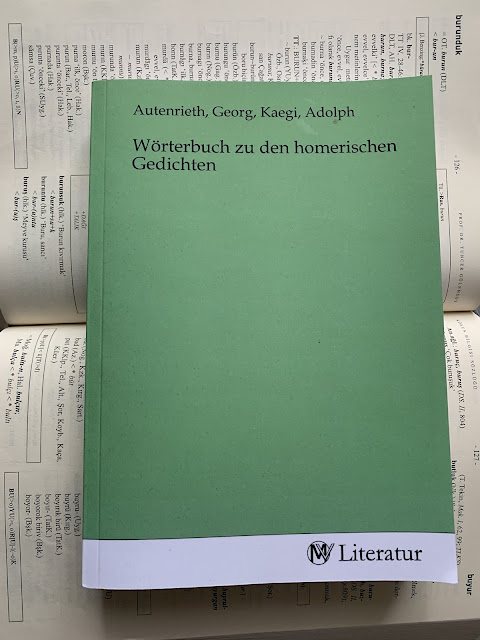 |
| Autenrieth Georg - Homeric words |
There is a suffix -θῐ (thi) in Homeric poems that is being added to nouns to form adverbs of location: meaning at, in, on.
Example ᾰ̓γχόθῐ: meaning at near.
(interesting it is, too, that this Pre-Greek word "ankothi" very similar to Türkic yakında (at near).
Another example ἐκεῖθῐ: meaning there.
In Old Türkic there is a suffix -de/-te with the same function as locative suffix.
Like we can read on Orhun Monumental Stones:
Ekin sü ebde erti: Second army was at home.
*
Coincidence?
Well, if we look at the link below, this suffix (with the two under the link below) with the same function and nearly same sound could not be coincidental, I would say:
Check it here out:
Homeric-Greek-suffixes-me-then-evrsus-Turkic-me-den
*
Homeros şiirlerinde konum zarfları oluşturmak için isimlere eklenen bir -θῐ (thi) son eki vardır: Türkçe -de, -da, -te, -ta gibi.
(örneğin ᾰ̓γχόθῐ (ankothi) sözcüğü: yakında demek
(Bizim yakında sözcüğümüze 1e1 benzer, hem ses hem de şekil olarak, ilginç).
Homer Yunancası -θῐ ekine ikinci örnek de ἐκεῖθῐ sözcüğü: "orada" demek.
*
Eski Türkçede de bulunma (lokatif) eki -de/-te bulunmaktadır.
Orhun Anıtları'nda okuyabiliriz:
Ekin sü ebde erti: İkinci ordu evdeydi.
*
Rastlantı mı?
Aşağıdaki linkteki 2 Türkçe eki de yanına alıp bakarsak aynı işlev ve anlama sahip bu 3 ekin tesadüf olamayacağını görüyoruz.
Homeric-Greek-suffixes-me-then-evrsus-Turkic-me-den
*
Uzunbacak Adem




No comments:
Post a Comment
Note: Only a member of this blog may post a comment.